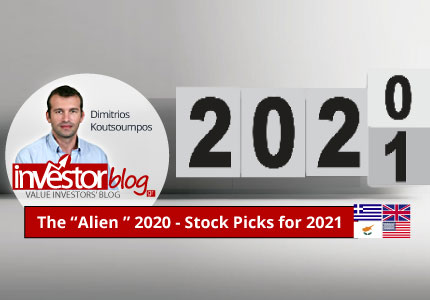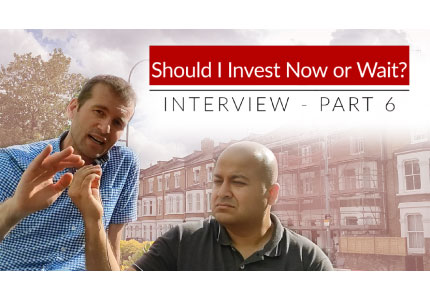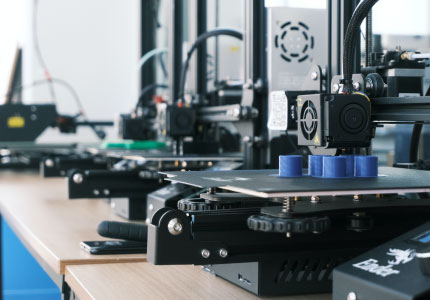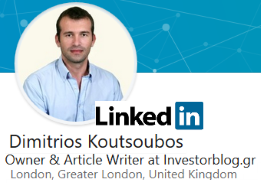b y Dimitrios Koutsoumpos
y Dimitrios Koutsoumpos
What an alien year 2020 was. I wish you and whoever you love to be healthy, and I hope for a return to normality in 2021. Outside Greece, stock prices have returned to the pre-pandemic levels, whereas in Greece we are close to reach them. Prices, especially for shorter periods, can be illusionary. What do you think? Are you a bad investor if your portfolio declined -40% until March? Are you a great investor if it doubled later on?
The market is a “seductress”
With this article, I take the opportunity to point out that none of those two is necessarily true. What is essential is to focus on what is happening in the companies we own. For example, if Aegean Airlines (AEGN.AT) goes bust, or suffers massive dilution, regardless of the price, high or low, the long-term holder won’t see any light at the end of the tunnel. If the company does well, and then return to past profitability without massive dilution, some gains could come. The lower the purchase price, the higher the gains.
Feeling happy for the rising stock, or sad for the decline, is naive. A higher price is discouraging for investing, whereas a lower price is encouraging. Essentially, what is encouraging are better prospects and developments, and what is discouraging are facts that question viability.
In the long term, the price and intrinsic value agree, but short term, they might be different. While the markets go up and down, it’s better to assess ourselves by honestly approaching the fair value, through evaluating weather the business performance agrees with what we had predicted, instead by checking what the prices are doing.
The retail “massacre”
I am bringing a personal example to help you understand. In the UK, one of my big “bets” was on debt-free and marginally profitable retailers. Buying them for a “mess of pottage”, they would either go bankrupt, or would offer tremendous gains due to the low purchase price.
A mix of wrong choices and bad luck (pandemic), brought real losses. Regardless of what the shares did, the weaker business performance, and the increasing probabilities of bankruptcy, meant a deterioration of fair value. After all, if I owned a store that did so so, and now operates in loss, its value has been affected, or even gone to zero if it can’t make it through. No need to see the 90% stock decline to understand it. I have accepted the defeat where I judge that the loss is permanent. I recognize it as such, not due to the massive stock price decline, but because of the true impact on the business, which makes a turn-around almost impossible. Take an excerpt from my article (in Greek) in April as an example:
These picks have significantly declined and impacted the portfolio, in a way that I consider the losses as permanent. As an example, Laura Ashley went into administration, while Safestyle raised new capital. I expect more such events in the future.
What has proved to be helpful is the high cash position, the importance of which I mentioned at the start of the year. I prefer to use it towards buying more defensive stocks (Royal Mail, BT Group, etc.), instead of the aggressive. Nevertheless, the latter have so much collapsed that small addings in some of them can promise huge returns. I do this very carefully in a selected group of them.
A good and successful example of those buys was N Brown (BWNG) which six-folded from its lows, and now has been sold. An unsuccessful example is the real estate giant Intu Properties, which went into administration.
 The UK Portfolio
The UK Portfolio
The UK portfolio is close to cover the big losses, in terms of market prices. This doesn’t mean that I am a better investor today, or that I was a terrible investor in March. I simply suspect that the market was exaggerating in a negative manner, and now blindly and rapidly re-values everything in a positive manner.
At least, I feel grateful that I was given the opportunity to reconstruct the positions in a way that I am satisfied. I am thinking of presenting you with my five biggest positions in the UK, maybe through a video. I have already mentioned the BT Group (BT.A) here, still my largest position. Royal Mail (RMG), the once second largest, has been sold out after the stock surge.
Beacon of the assessment should be finding the truth, regardless of whether it humiliates or makes the investor proud. Above, I said that the lost battle in retail was a mix of bad luck and wrong choices. My reference to bad luck isn’t to excuse myself, neither I wish to focus on it. Anyway, whatever its contribution, I do not control it. Instead, I prefer to focus to what I think I did wrong or right, for my and your learning.
Let’s start from the good: Despite the fact that UK stocks in LSE were greater bargains compared to the Greek stocks, I moderately invested in them. This is because I have learned through the years the importance of a pilot model for what you are about to do for the first time. Furthermore, in spite of my confidence for the turn-around prospects of retail, and my excitement for this investing idea, I made sure these picks did not overcome a size limit in the UK portfolio. To put it another way, despite liking more retail stocks, I pushed myself to include stocks from other sectors.
The smaller buys in the UK, under the pilot model, saved me as an investor, and the decision for a limited retail exposure, saved the UK portfolio from huge permanent losses.
Let’s continue with the bad: What I underestimated, and now realized for sure, is the disadvantage of capital-light companies. They initially seem to have a great advantage, since they can achieve high return on capital, and thus high growth with low cost. Thus, their fair value reasonably exceeds the equity value.
The disadvantage is the lack of fat to burn, if they turn to losses. Companies with heavy CAPEX, such as Mytilineos (MYTIL.AT) or Flexopack (FLEXO.AT), are limited to achieve return on capital of below 10% — not said with the intention to snubbing this amount. What I learned with capital-light businesses is that losing their earnings can lead them to bankruptcy, even if they were formerly debt-free, since there is nothing tangible to keep them afloat.
In addition, I experienced the differences between Greece and the UK. Greece mainly has family and well-established businesses. In case of difficulty, the major shareholder will do whatever it takes to save the company, sometimes to the point of abuse through links with the political or banking system. This is the reason that we see “carcasses” that survive for years despite being loss-making. Their restructuring becomes “a series”.
The UK companies have multiple shareholders, so nobody cares that much, or has feelings, for the company. Also, the economic environment is capitalistic and volatile, while the insolvency law is quick: “Have you run out of money, and no assets to guarantee, Mr. Shareholder? Its time for creditors to take the wheel!”. I have been shocked with how rapidly companies go into administration, with shareholders just leaving the keys. This is a lesson for how cautious should I be for capital-light companies, even if they are debt-free, even if they are profitable. I don’t say that I will avoid them, but I will always be ready for a “collapse” scenario if earnings disappear.

 The…”Greek-Cypriot” Portfolio
The…”Greek-Cypriot” Portfolio
Unexpectedly, the portfolio in Greece, from where I was willing to escape in the prior year, has reached historical highs. The help came from buying low, companies like Thrace Plastics (PLATH.AT), and from the surge of some small IT stocks that I have owned for a few years now. For these reasons, the portfolio has totally transformed.
Thrace Plastics has been sold out now, as Karatzis did a year ago due to the tender offer. On the other hand, positions in IT companies like Entersoft (ENTER.AT), Epsilon Net (EPSIL.AT), and Ideal (INTEK.AT), have grown due to the rising stocks, creating big dilemmas for selling or not. As I explain in the video below, it is tough to estimate their value, because it is based on future evolution.
This is not an issue when they are bought for cheap. After all, they promise profits, no matter if those are big or small. But what about now, that they are becoming expensive, and the harvesting period has come? When taking the decision becomes too hard, I usually choose the Solomon-like solution, and partially sell. However, for these small IT companies with indefinite prospects ahead, I have to think twice before I sell.
The performance of the Greek portfolio (including Cypriot stocks) reached +18% in 2020. For the same period, the Athens Stock Exchange Index lost -11.75% of its value, mostly affected by banks. I have to admit though, that the index rose +49% in 2019, whereas my portfolio achieved a much lower +14%. This is due to the portfolio’s large cash position and the non-exposure to banks. I would say, with some self-criticism, that I overdid it with cash, but I could not find stocks at prices I would feel comfortable with. Fortunately, this year, I think I have found some alternatives, so I can stay invested. For the Greek portfolio, €1 invested at the end of 2008 has turned to €3.1 today (17/1/20).
About two months ago, I added new positions and I was planning to write an article for five of them (Hellenic Exchanges, Motor Oil, Kri-Kri, Karelia, Alpha Astika Akinita). For Motor Oil (MOH.AT) and Hellenic Exchanges (EXAE.AT), I only managed to take some initial small positions at their lows, before they rapidly skyrocketed. Thus, I don’t consider them great opportunities anymore, to devote them an article, and I have completely sold them out. I bought Motor Oil when it went under €8 per share, and I was ready to average down if the stock continued south. On the contrary, earlier in April, I expressed my negativity with the stock higher, at €13 per share:
the market does not take into account events, not hard to foresee. I suggest you visit one of my older posts on Motor Oil (Greek version), which you might find topical. A few years have passed, but the situation described could be instructive for today.
I feel more optimistic for Kri-Kri (KRI.AT), Alpha Astika Akinita (ASTAK.AT), Karelias (KAREL.AT), the new positions I still hold. I have also added the company “X”. I am not revealing it yet, since I am planning to write an article, and do some deeper research.
My five largest positions in Athens & Cyprus stock exchange in descending order are: KEO (KEO, Karelias, Alpha Astika Akinita, Lordos Hotels, Blue Island).
You don’t see any IT, or IT related companies above, because the positions for each of them are smaller, but they consist 31% of the invested part of the portfolio (Intracom included), . The cash position is high at 42%, so the invested part of the portfolio is 58%.
As you can see from my high exposure in real estate (Lordos, ASTAK), I prefer defense. The shield isn’t only due the the defensive per se nature of properties, but because these shares are in great discount compared to their internal value.
This year, I repeat once again that I don’t believe that current prices promise great upside for most Greek stocks. You may have noted, though, the portfolio’s high performance in 2020, despite of me having being similarly pessimistic a year ago. This was mainly due to the buying opportunities in the first half of the year, when the prices declined. I hope it has become clear, the low prices create the future performance. If the stock market runs today, it subtracts performance from the future. So simple! Only the real earnings of the underlying businesses are those that create the real and sustainable gains.
In other words, I am still more optimistic for the UK than for the Greek stocks that I own. Please wish me not to fall on my face again this year.
 The Americas
The Americas
On the other side of the Atlantic, I am invested in a few cyclicals, such as Smart Sand (SND), and Canfor Pulp (CFX.TO). At the same time, I pay some puts on overvalued stocks as a hedge. I am stunned to see phenomena that won’t have a good ending, as I have detailed in this article: “The Investor of the Tube” (in Greek).
Do you care about what the stocks will do in 2021;
The basic idea I wish I bolster this year is distinguish what prices are doing from what’s going on in the real value of the companies that you own. I think that by implementing this philosophy, and by rationally estimating the fair price, the “anchor” you create is too “heavy” for you to be carried out and be afraid of the “currents” of the markets. No need to struggle predicting what the stock market will do the next day. Just ask: “What are the earnings that the company I own will produce in the next 10 years? What are the possibilities to make it through the difficulties?”. That’s all!
Please, remember to read my latest article on Seeking Alpha about Tesla (TSLA). From the bottom of my heart, I sincerely thank you for hitting 1,000 subscribers on the Youtube Channel!
Happy New Year!
Dimitrios Koutsoubos
*Content presented on Investorblog does not present any recommendation for stock transactions. All investors are advised to conduct their own independent research into individual stocks before making a purchase decision.
Ελληνικά







david
Great content Dim.
I have a question, could you share with us more details in order to explain why did you invest in Smart Sand and Canfor Pulp
Thank you
David
Dimitrios Koutsoubos
Hey David, thank you for your comment.
Both of them are cyclicals. For Smart Sand, have you seen the following detailed article?
https://seekingalpha.com/article/4319823-smart-sand-smart-cyclical-pick-great-upside
The concept is that in those companies, the earnings fluctuate. The conditions change from good to bad, and again to good. So, sometimes the bad results hide their cheapness, as they are wrongly considered as bad companies. Equally, in the upcycles, people thing of those businesses as great and growing, which is again wrong.
In every cycle some of them won’t make it through. In commodities, you are safer if you pick the lowest cost producers, and those that they have less debt.
Is anything, that you want me to clarify further?